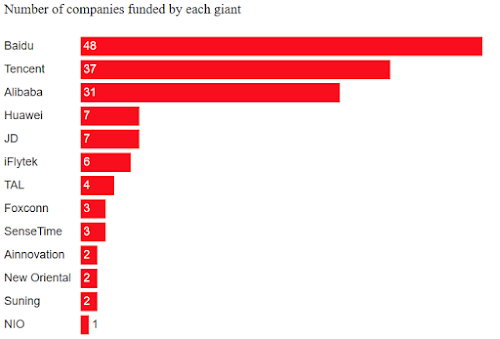A step towards future: India becomes a founding member of GPAI
There’s no doubt AI is one of the critical technologies of this era. The development of AI has the potential to fundamentally transform civilian and military life in the coming decades. Consequently, AI will be a driver and structural force reshaping the global order.
A group of countries have founded Global Partnership on Artificial Intelligence (GPAI) named body which is intended to give rise to "responsible and human-centric" development and use of Artificial Intelligence (AI). GPAI is initiated by France and Canada in May 2020 including Australia, Germany, Italy, Japan, Mexico, New Zealand, the Republic of Korea, Singapore, Slovenia, the United States, and the European Union. India, as a founding member has also joined GPAI in June 2020.
This is a first initiative of its type for evolving better understanding of the challenges and opportunities around AI using the experience and diversity of participating countries.
According to the joint statement, GPAI will bring together leading experts from industry, civil society, governments, and academia to collaborate across four Working Group themes: 1) Responsible AI; 2) Data Governance; 3) The Future of Work; and 4) Innovation & Commercialization. Critically, GPAI’s experts will also investigate how AI can be leveraged to better respond to and recover from COVID-19. GPAI will be supported by a Secretariat, to be hosted by the OECD in Paris, as well as by two Centres of Expertise, one each in Montréal and Paris.
To achieve this goal, the initiative considered to bridge the gap between theory and practice on AI by supporting cutting edge research and practical implementation activities connected with AI priorities.
Why China got exempted from GPAI?
Today, China is poised to become its undisputed global leader, and that will affect every business.
One unsaid aim of the initiative is to take on China, which has left countries around the world miles behind in development of Artificial Intelligence. Every year more than 10 billion dollars is being invested in AI startups, more than half of which goes to Chinese startups.
One unsaid aim of the initiative is to take on China, which has left countries around the world miles behind in development of Artificial Intelligence. Every year more than 10 billion dollars is being invested in AI startups, more than half of which goes to Chinese startups.
Under President Xi Jinping, China has made tremendous strides in many
fields, but especially in A.I. Businesses and government have
collaborated on a sweeping plan to make China the world's primary A.I.
innovation center by 2030, and it's already making serious progress
toward that goal.
China's biggest companies--Baidu, Alibaba, and Tencent (collectively known as BAT) are the superpowers of China's well capitalized, highly organised AI plans. BAT has the funds and the resources to compete with US tech giants for global AI talent. This is particularly significant as the demand for AI talent is driving a big run-up in salaries.
Now international players, including big tech companies, smaller
startups, and foreign governments have started thinking hard about how
their AI strategies will intersect with, or potentially compete
against BAT.
India's part in AI play:
India is behind other nations in AI PhDs and AI
research. India’s unique challenges and aspirations, combined with the advancement in AI, and a desire to assume
leadership in this nascent technology means India’s approach towards AI strategy has to be balanced for
both local needs and greater good.
The way forward for India in AI has to factor in our current strengths
in AI, or a lack thereof, and thus requires large scale transformational interventions, primarily led by the
government, with private sector providing able support.Hence, the budget should allot more grants for AI research and
offer incentives to institutes investing in AI training.
Accenture recommends India’s AI stakeholders to consider the following five recommendations:
- Forge a national AI plan and multi-stakeholder partnerships in key sectors.
- Strengthen India’s AI R&D ecosystem, including through better international cooperation.
- Create a workforce of the AI future, fostering inclusive workforce models.
- Enable and broaden access to data.
- Embrace smart regulation to safeguard responsible AI.
India has enrouted some of these recommendations for now. The preceding analysis of focus sectors – Healthcare, Agriculture, Education, Smart Cities and
Infrastructure, and Smart Mobility and Transport, highlight the potential of AI tools and technologies in
transforming the sectors and state of Indian economy as a whole. However, there are a
multitude of challenges that India needs to overcome to realise the full potential of a disruptive technology
like AI.
If you find this post useful, help it get spread by sharing with a friend or on Twitter or Facebook. Thank you!
Published By
Shamli Deshmukh | World Uncensored.






Comments
Post a Comment